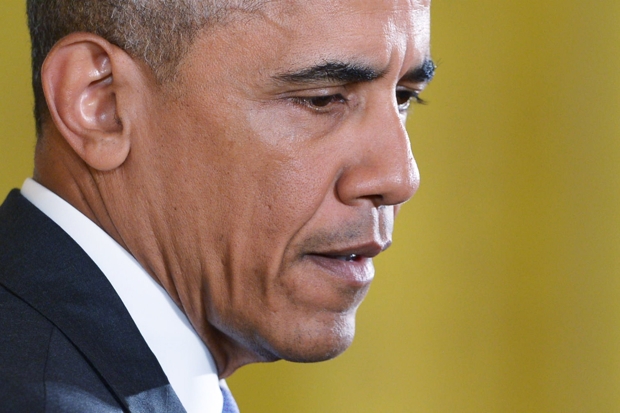President Obama has accused critics of the recently announced deal with Iran of having no credible alternative. According to Obama, it was this deal or no deal. And then, alleges the president, the options are either acquiescence or war. But this is a false choice, set up by the Obama administration to make its bad deal look like the best we ever could have hoped for. Yet, the truth is that the alternative to this deal was not no deal, it was a better deal, one that actually met the international community’s objectives in undertaking negotiations in the first place.
The Iran deal presented at Vienna is both weak and also far more dangerous than most observers had anticipated. Weak because it very evidently does not definitively meet its own objective of ensuring Iran won’t be able to acquire nuclear weapons capabilities, and dangerous because in return for the temporary limitations set on Iran’s nuclear programme, the regime and its conventional military capabilities will be profoundly emboldened.
The document that came out of the negotiations is long and woefully complicated. But just to get a sense of how weak this agreement actually is, one only needs to take the issues of verification and compliance; that is the inspections procedures and the consequences Iran faces should inspectors discover Iran breaching the agreement. On this, the Obama administration pledged to get ‘anytime, anywhere’ inspections and a procedure for the instantaneous ‘snap-back’ of sanctions in the event of an Iranian breach. Both of these provisions are now absent from the deal.
In both instances what the deal offers is a long and protracted series of formalities and consultations that in the best case scenario will delay international inspectors’ access to key sites by weeks, and that will hold up the reimplementation of sanctions by months. Indeed, many suspect that even if Iran were to disregard its commitments further down the line, rebuilding an international consensus for restoring sanctions would be all but impossible. Besides, sanctions are not an end in themselves, in the past they have been used to drag Iran to the negotiating table. But what could they be expected to achieve once Iran had already broken a negotiated agreement?
But this agreement has another, no less alarming dimension. Unbelievably, the deal simultaneously unfreezes over a hundred billion dollars’ worth of Iranian assets upfront and ultimately lifts the arms embargo, granting Iran access to new conventional weapons while also providing it with the means by which to purchase them. No doubt a proportion of this windfall of weapons and cash will find its way to Iran’s regional proxies, to Hezbollah in Lebanon, and to propping up Assad in Syria.
Worse still, a few years into the agreement and the embargo relating to ballistic missiles technologies will also be lifted. This means that Iran will be able to develop the delivery system for the nuclear warhead that it may still yet attempt to develop. And the Iranians will also be able to further improve their air defence systems to potentially repel any future attempt to intervene against its programme. Indeed, this deal even includes a clause obliging the international community to assist Iran in bolstering its nuclear sites against sabotage.
Despite all of this, the Obama administration insists that the deal will be effective and that no better deal would have been attainable. To his critics, Obama accuses that if they favour war, then they should say so. But for years, the Obama administration insisted that all options were ‘on the table’ when it came to confronting Iran, and everyone understood this to be reference to possible military intervention. ‘I don’t bluff’ insisted Obama when referring to the use of force in 2012. And yet more recently the President has made plain his belief that there is no realistic military solution to the Iranian threat, rather suggesting that he was indeed bluffing. Many suspected so at the time, not least the Iranians. And therein lies the problem.
When it comes to the military option – an unpalatable prospect to be sure -there is an important role for the military deterrent. That doesn’t mean that the West would have to use military force, but it would need to convince Iran that it was serious about doing so if need be. We shouldn’t forget that the one time Iran appeared to voluntarily halt work on its nuclear programme was during the invasion of Iraq. Clearly the mullahs’ thought there was a real likelihood that they could be next.
The same is true of sanctions. During these negotiations, Obama consistently resisted congressional pressure to have new tougher sanctions ready in the event that Iran walked away from a deal that actually met the West’s security objectives. The threat of yet more sanctions could well have given the negotiators the leverage for securing a deal that was actually robust enough to be taken seriously.
If Iran knew that the West was prepared to stop at nothing to derail any attempts to go for the bomb, then regime might think twice, certainly if it thought its own hold on power would be jeopardised. But in reality, Tehran could see just how badly Obama needed to get a deal signed and they cashed in accordingly. The capitulationist agreement that emerged from Vienna is the result, and history will judge our leaders for not showing resolve and pushing for better.
Tom Wilson is Resident Associate Fellow at the Centre for the New Middle East at The Henry Jackson Society






Comments